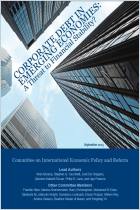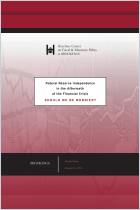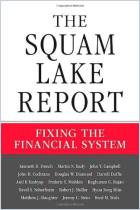Melden Sie sich bei getAbstract an, um die Zusammenfassung zu erhalten.

Melden Sie sich bei getAbstract an, um die Zusammenfassung zu erhalten.
Viral Acharya
Financial Stability in the broader Mandate for Central Banks
A Political Economy Perspective
Brookings Institution, 2015
Was ist drin?
An economist offers proposals for enabling prudent central banking within a political context.
Recommendation
When greed looks for ways to evade sensible regulation and economic efficiency in search of profits, it can lead to big problems. Economist Viral Acharya acknowledges that regulating the financial sector can be a race among the rule makers, the politicians with vested interests, and the moneymen looking for loopholes. Yet Acharya’s proposals for enabling prudent central banking within a political context, though not new, make good economic sense. getAbstract recommends his timely report on how to design realistic regulation to policy makers and central bankers.
Summary
About the Author
Viral Acharya is an economics professor at New York University’s Stern School of Business.






















Comment on this summary